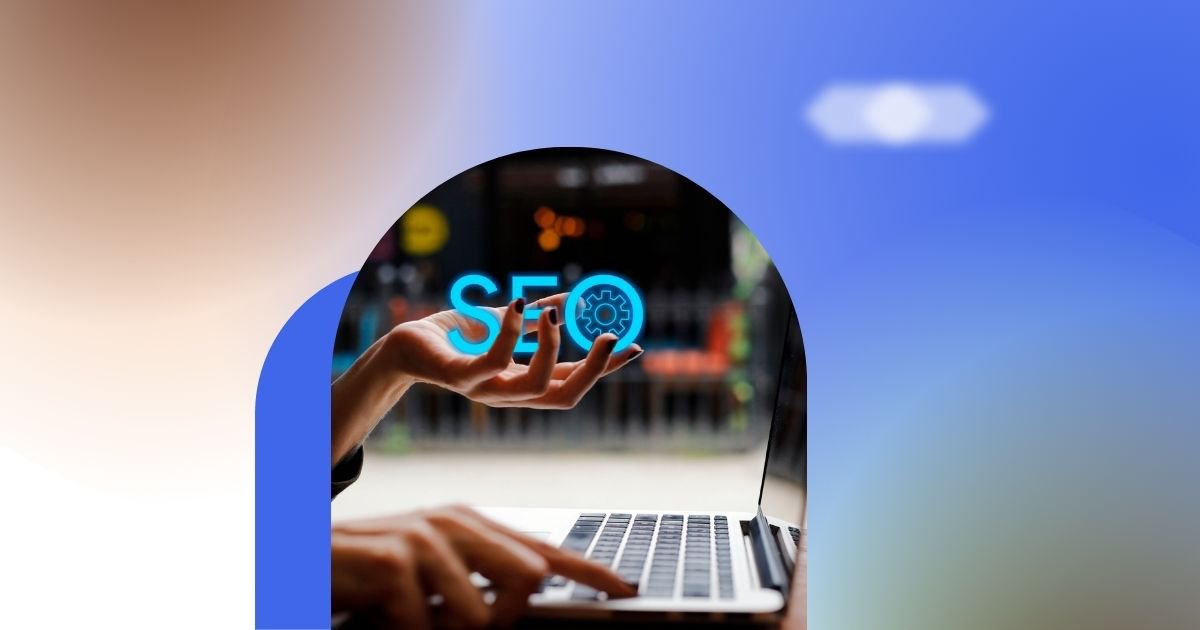A growth mindset is no longer just a tool in personal development strategy; it’s a must-have for every C-suite executive, business leader, or manager who wants to maintain relevance in the evolving workplace. Popularized by psychologist Carol Dweck, a growth mindset is the belief that one can develop one's talents, intelligence, and skills through effort and perseverance. Learning how to develop a growth mindset helps you to hone your craft and increase your resilience continuously.
In addition, developing a growth mindset helps create an environment conducive to success. You can inspire learning and adaptability in your team members, which increases their capacity to perform better. A growth mindset benefits you in the long run and sets the tone for organizational transformation.
The opposite is a fixed mindset based on the belief that abilities, intelligence, and talents are static and cannot be developed. This deterministic view prevents people from working to grow at what does not come naturally to them.
Not only does this hinder personal development, but it also hinders innovation, experimentation, and adaptability in business. This, in turn, reduces the business value over time till other growth-minded competitors eventually sideline it.
Let’s explore how to develop a growth mindset.
Understanding the Growth Mindset
A growth mindset is a psychological perspective that shapes how individuals approach challenges and opportunities. It is the core of transformational leadership and organizational culture. Business leaders with a growth mindset are more resilient and adaptable, embrace mastery and are open to innovation.
Resilience
The average individual sees challenges and setbacks as stumbling blocks on their way to success. Some even take them as a sign that what they have set out to achieve can’t be done. However, this is the opposite for growth-minded business leaders. They see challenges as opportunities to learn more and sharpen their skills. This is why they persevere, manage the situation, and lead their team to succeed. They believe, as Ryan Holiday puts it, the obstacle is the way.
Mastery
Astute business leaders understand that mastery is essential for a business’s sustainability. Mastery involves developing a deep understanding and skill set in a particular niche, producing higher output quality. It gives a business a competitive advantage but can’t be gained without a growth mindset. Through continuous learning, experimentation, effort and openness to feedback, growth-minded business leaders become masters of their trade.
Adaptability
Adaptability refers to the ability to adjust quickly to changing conditions. An adaptable person can keep up with changing priorities, projects, skills, technology, etc. An adaptable business can keep up with the economy's changing needs, trends, and consumer behavior. Any business that refuses to adapt to the ever-evolving marketplace is on the verge of collapse. Growth-minded business leaders recognize that adaptability is crucial for sustenance. No adaptability, no sustenance. As such, they are willing to embrace change and shape their decisions and actions accordingly.
Openness to Innovation
The ability to innovate starts with a willingness to experiment with new ideas, take risks, and continuously find ways to improve, which is the core of the growth mindset. Business leaders with a growth mindset recognize that openness to innovation is necessary to stay ahead of the competition and stand out in the marketplace.
For instance, Satya Nadella, the CEO of Microsoft, is credited for turning the company’s fortunes around due to his growth mindset. When he took over the company’s leadership, he shifted the company’s focus from protecting legacy products to embracing cloud computing and open-source collaboration. This made Microsoft’s value rise to over $2 trillion.
On the flip side, business leaders with a fixed mindset are stagnant. They believe their abilities are unchangeable, hindering their personal development and organizational progress. They fear failure and change, which eventually brings about their death.
Why a Growth Mindset is Essential for Business Leadership
A growth mindset powers success in business leadership. Only business leaders who believe their abilities can be developed through effort and perseverance can achieve extraordinary results. Leaders with a fixed mindset, more often than not, don’t get things, and they remain stuck. Below are reasons why a growth mindset is important.
Navigating challenges
Growth-minded business leaders recognize the challenges of the digital age, such as leading remote teams, as stepping stones to greater growth—higher revenue, more customers, stronger brand loyalty, etc. For example, leading a remote team requires a leader to be flexible, goal-oriented, creative, and emotionally intelligent to get anything done. No matter the challenge, business leaders with a growth mindset come out on top.
Embracing New Technologies
Growth-minded business leaders are more open to embracing new technologies. Technological advancements heavily influence the business environment, sometimes even disrupting the ecosystem. Businesses increasingly rely on emerging technologies such as Artificial Intelligence, Augmented Reality, Virtual Reality, etc. Instead of being overwhelmed with technological changes, leaders with a growth mindset learn how to use and apply them.
Driving innovation
Business leaders with a growth mindset understand that they cannot do the same things repeatedly if they want their business to thrive. Innovation is vital to business progress. Growth-minded business leaders think outside the box, challenge the status quo, and experiment with different ideas, which enables them to drive innovation.
According to the 2023 Future of Jobs Report, the World Economic Forum estimates that 23% of all jobs will be disrupted. Artificial intelligence and automation will also lead to losing jobs while creating new ones. This requires workers to upskill and reskill, as skills such as analytical thinking, innovation, and digital literacy will be in high demand. Consequently, only leaders with a growth mindset can meet these demands.
Finally, leaders with a growth mindset are best positioned to manage uncertainty. As mentioned, they see uncertainties as avenues to learn more and hone their skills. They are open to experimentation and see failure as a stepping stone. This belief inspires them to take risks, learn from their mistakes, and adapt quickly.
Strategies to Develop a Growth Mindset at Work
Knowing the benefits of being growth-minded won’t do you much good until you learn how to develop a growth mindset. Here are some strategies you can explore.
Fostering a Culture of Learning
The core of the growth mindset is the belief that every ability, skill, and intelligence can be developed through learning. A study by LinkedIn Learning reveals that 94% of employees said they would stay longer at a company that prioritized their development.
Fostering a culture of learning also increases your team’s productivity and innovation, which shows in your outputs. To do this, provide your employees with learning resources such as online courses and mentorship, as a core part of your business strategy.
Encourage curiosity and ask thought-provoking questions. Promote peer learning in your workplace, too. Let your employees learn from one another through knowledge-sharing sessions or collaboration in cross-functional teams.
Encouraging Open Feedback and Reflection
Feedback and reflection are other core pillars of a growth mindset. However, they must be constructive and integrated into the workflow to be effective. First, let your employees know they have nothing to lose when sharing their thoughts. To encourage honest feedback, you can implement anonymous surveys or open-box suggestions. You can also conduct regular one-on-one feedback sessions.
Furthermore, encourage your employees to reflect on their work performance regularly. Self-reflection allows employees to be brutally honest and gain insights to perform better. Train your team on using tools such as journaling and mindfulness exercises for self-reflection.
Promoting Risk-Taking and Innovation
A study by Deloitte shows that risk-taking promotes innovation, which helps companies generate higher revenue growth. However, risk-taking must not be done foolishly. Train your team to create calculated risks and experiment with new ideas. Create an environment where failure is seen as part of the learning process instead of as the end of the road.
Amazon is a good example of a company that promotes risk-taking and innovation. Its “fail fast” culture allows employees to experiment quickly, gather feedback, and pivot if something doesn’t work. This “fail fast” culture led to the development of services like Amazon Web Services (AWS), which has become a multi-billion-dollar niche today.
Also, reward innovation, whether it’s a success or failure. This reward can range from public recognition to promotion to monetary benefits. Recognition encourages repetition.
Leveraging Global Talent for Growth
Outsourcing global talent is another way to get diverse perspectives and innovative solutions. It helps you tap into experience, expertise, and skills not readily available in your local market. In addition, it is a double-edged strategy; you can hire the best talents at competitive rates while you expand your company’s reach simultaneously. A study by Harvard Business Review finds that diverse teams are more likely to capture new markets, as it fosters cross-cultural creativity.
At Wing, we provide outsourcing services in various roles, such as administrative support, project management, content writing, and customer service for businesses that want global talents. We have a thorough vetting system for every professional we send your way, so you can be assured you are getting the best talents in the market.
Developing Resilience and Adaptability in Leaders
Considering the global business ecosystem, business leaders who aren't resilient and adaptable hardly make it to the top. Their businesses get eaten by other players who are steps ahead. That said, what do resilience and adaptability mean?
Resilience and adaptability are core components of the growth mindset. Resilience refers to the ability to bounce back from adversity. It maintains a positive outlook on life even in the face of setbacks. Resilient leaders can maintain focus and not drop the ball, no matter what happens. They are also skilled at managing stress and taking every chance to learn and grow. Adaptability means being able to adjust to new changes. It perfectly complements resilience; one cannot exist without the other.
How to Strengthen Resilience and Adaptability
Leaders who embrace adaptability are open to experimenting with new things and see failure as part of the learning process. Both qualities allow leaders to manage crises effectively, pivot when needed, and turn challenges into opportunities.
Let’s explore some tips on how to strengthen these traits.
- Embrace uncertainty. Accept that there will be gaps in your knowledge, and that’s welcome. It’s an opportunity to learn, which increases the value of your intelligence and skills.
- Model adaptability. Be the kind of leader who is flexible in decision-making, encourages experimentation, embraces feedback, and pivots strategies when needed. This approach will also empower your team to experiment and give honest feedback.
- Practice mindfulness. Be present in the present. Avoid getting caught up in thoughts about the past or future, which can steal the now from you. Studies from the Harvard Medical School show mindfulness can help you manage stress, reduce anxiety, and increase mental resilience.
- Encourage diversity. If you want to be resilient and adaptable, you need to be able to see things from different perspectives. And you will not get that if everyone on your team thinks alike. This is why you should have people from diverse backgrounds onboard.
- Choose perfection over progress. Some things won’t be 100% perfect all the time, and that’s okay. Perfectionism hinders adaptability. Learn to focus on continuous progress in cases where perfect isn’t possible.
That said, one way to foster more resilient leadership practices is to leverage the diverse perspectives of global outsourcing. Outsourcing allows you to tap into people's intelligence, skills, and experiences worldwide, providing solutions from angles you or your in-house team would never have considered.
Managers Must Learn How to Develop a Growth Mindset
A growth mindset is the only way to achieve personal or organizational success. It helps you embrace continuous learning, experimentation, receiving feedback, and staying the course.
Moreover, a growth mindset aligns with strategically using outsourcing to gain diverse and innovative perspectives that increase your business’ resilience. It also increases your credibility and odds of success. Outsourcing is more than a cost-effective way of getting the work done; it is a strategic means to pool together the best possible solutions.
At Wing, we provide businesses with the best global talents to help them tap into this global expertise. The next step is to connect with us to be matched with qualified professionals in any niche for your business growth.
Aya is Wing Assistant’s blog manager. When she’s not wrangling content briefs, editing article drafts and handling on-page SEO, she is crafting messages for Wing’s other communication materials. Aya writes about SaaS startups, marketing for startups, search engine optimization, and pop culture.






